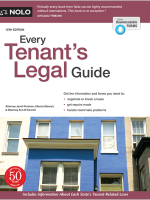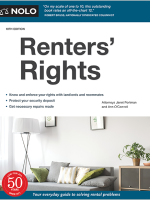Many people would love to have a friendly and easy-going relationship with their landlord or their tenants, but sometimes a landlord must seek to evict tenants to maintain a safe and well-managed property. However, many landlords who are in disputes with tenants are unaware of the proper legal process to run an eviction and can run the risk of committing an illegal eviction. Because of this, some landlords can face major criminal charges or a significant liability because of this illegal activity. Let’s take a deeper look illegal eviction, the consequences, and ways to avoid it.
What is an Illegal Eviction?
Illegal evictions are any form of eviction that is not performed following the standard legal process. Landlords and tenants alike should familiarize themselves with the laws by contacting an attorney or any housing agency. If a tenant is illegally evicted, the tenant can sue the landlord for wrongful eviction and recover damages from the landlord to compensate for the expenses associated with the illegal eviction. When people think of illegal eviction, the most prominent thought that comes to mind involves using or threatening physical force to make the tenant leave. This behavior can open the landlord up to criminal charges as well as civil liabilities.
Types of Illegal Evictions
There are a few known types of illegal evictions. Let’s take a look at a few:
- Disturbing the comfort of a tenant – This is when a landlord uses a disgraceful course of conduct towards the tenant to encourage the tenant to leave. For example, some landlords may cut off essential services like hot water or electricity in the hope of making the tenant’s stay in the apartment unbearable.
- Forcing the tenant to vacate the property – This type of illegal eviction occurs when a landlord takes steps or threatens to take actions that can prevent the tenant from occupying the unit. Some landlords may change the locks on the tenant’s apartment without providing a new key or tampering with the locks, removing the tenant’s door, or removing their possessions from the unit.
- Failing to provide a written warning or not providing the correct information in a notice – Landlords cannot take action before the given time on the written warning. In some jurisdictions, landlords must get a court order to evict tenants and cannot personally evict tenants or ask law enforcement for help without a court order.
- Documenting problems with the property – If a tenant documents problems with the property and the landlord hesitates to fix the problem, the tenants can resolve the issue without fear of retaliation. If a landlord tries to evict the tenant as retribution, it would be deemed illegal.
Illegal Eviction Consequences
There could be many serious consequences of illegal eviction. If an unlawful eviction occurs, the tenant can call the police and bring criminal charges against the landlord. The tenant can also seek an order from the court, which would direct the landlord to allow the tenant to return to the premises. In some cases, the landlord may even be liable for up to three times the amount of damages suffered by the tenant.
How To Protect Yourself From a Potential Illegal Eviction
There are a few ways you, as a tenant, can protect yourself from illegal eviction. Let’s let a look at how you can do so:
- Get your lease in writing. Add all adult occupants to that lease to protect your household from any situation where a landlord would ask you to leave the premises without going through a legal eviction process.
- Get a lease in writing and save a copy on your phone to prevent any situation where a landlord may tell a law enforcement official that the tenants are squatters.
Ways You Can Avoid Being Illegally Evicted in the Future
Being illegally evicted can be a terrible thing. Let’s take a look at some ways you, as a tenant, can avoid being evicted unlawfully.
- Get everything in writing – If you, as the tenant, go to the condition of the property, and the landlord tells you ‘don’t worry, by the time you move in, everything is going to be fixed,’ as a tenant, you should get everything he says in writing (all the things he says he will fix), and you sign it. Allow the landlord to sign it, include the date that he said it would be done, and keep a copy of the writing.
- Request repairs in writing and keep a copy – As a tenant, you have a right to safe and livable housing. The apartment should be inhabitable such as having proper plumbing, electrical, free from rodents, etc. Make sure the apartment passes the test in repairs. If not, request repairs in writing, or you can also send it by email to the landlord.
- Know what a landlord can and cannot do under the law – A landlord cannot force you out of your apartment without a judgment from the court. The landlord can’t change the locks, disconnect your utilities, take your belongings and throw them out without permission from the court.
- Don’t ignore eviction lawsuits – if the tenant comes home and finds an eviction lawsuit on his/ her door or someone comes and hands a lawsuit to someone in the household, don’t ignore it. As a tenant, you may be able to prevent a judgment from happening by negotiating with your landlord, catching up with the rent, or asserting a legal defense. If the lawsuit is ignored, you can lose the suit, and a judgment for eviction can be issued against you, which may make it impossible for you to rent again in the future.
How to Sue a Landlord for Illegal Eviction
There are various ways you, as a tenant, can sue your landlord for illegally evicting you. To legally evict you, your landlord must first end your tenancy. Meaning, the landlord has to sue and get a court judgment. If the landlord illegally evicted you without complying with these requirements, then you, the tenant, can sue. As a tenant, you can:
- Visit your local courthouse and file a complaint – Explain how the landlord evicted you and gather sufficient evidence for the lawsuit.
- Keep your eviction notices – Before the landlord can evict you, he/she must provide you with notices. These notices should outline why you are illegally evicted, such as being behind on your rent, or you might have broken some other term on the lease. You can also note the date you received the notice, and the landlord must give you the notice a set number of days before bringing the lawsuit to evict you. Some state laws usually set requirements for these notices. If your landlord didn’t follow the law, then you, the tenant, can have a stronger argument for illegal eviction.
- Read your state’s requirements – You can search your state’s requirements for an illegal eviction online or visit your nearest law library, which might be located in your courthouse or at a nearby law school.
- Put on record that the eviction is retaliation – As a tenant, it is illegal for your landlord to evict you for exercising your legal right. For example, if you file a complaint against your landlord to the health and safety department, the landlord cannot turn around and evict you as punishment.
- Call the police if the landlord throws your stuff out of the apartment – Let the police know that the landlord is illegally evicting you. Wait for the officer to arrive. You will need identification to show the officer that you live in the apartment. Depending on your state, the officer can order the landlord to let you back into the apartment. The police can also arrest the landlord who refuses, and you, the tenant, should get a copy of the police report that’s filed, which is good evidence of the illegal eviction.
- Meet with a lawyer – The landlord will have an attorney. If you don’t have a lawyer, you will be at a disadvantage. Get an attorney to discuss the strength of your case during a consultation. You can find a lawyer by visiting your local bar association or your state and ask for a referral to a landlord-tenant lawyer.
Who should I contact if I am illegally evicted and need help with finding housing or legal counsel?
Fortunately, if you are illegally evicted, there are several steps that you can take to combat illegal eviction. First and most importantly, you need to seek legal counsel and provide them with the necessary information. If you don’t have an attorney, you can always find one nearest to your location. Be sure to exercise due diligence before securing the services of an attorney.

